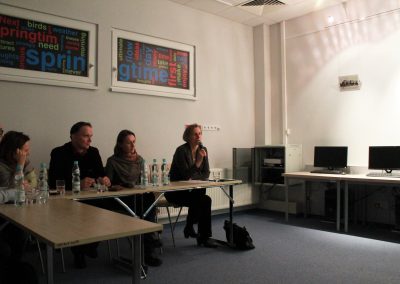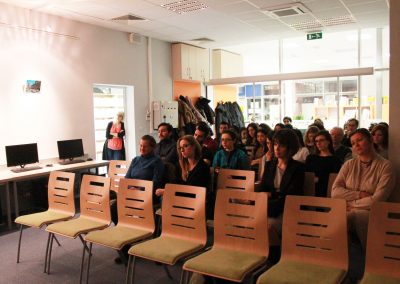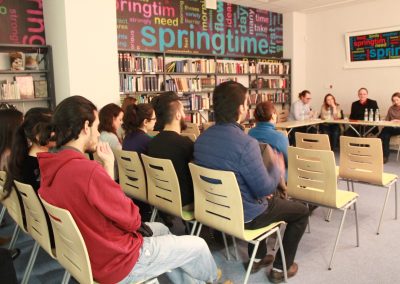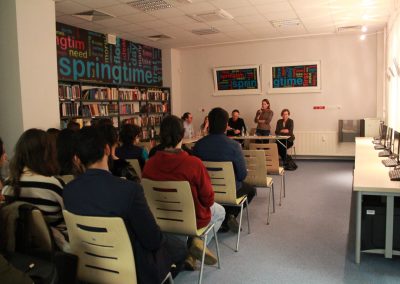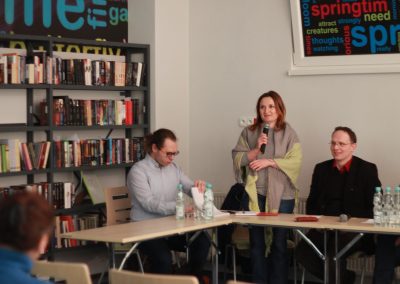On Wednesday we met in the Municipal Library Fil. 4 to participate in the debate entitled Gender ideology(ies): Man and woman – different by nature, inequal by society? We tried to find the answer to this question with our four guests: sociologists Borys Cymbrowski and Anna Czerner, philologist Katarzyna Molek-Kozakowska and biologist Elżbieta Pogoda.
We were aware that for most people the term gender is unfamiliar or even unfriendly, especially when someone is not a philologist or a social researcher, so we started with the basic questions: what gender is, how it exists in our respective fields of studies, and if there exists gender ideology. We can say that gender in general is about social consequences of being men, women or the others, because in the opinion of Elżbieta Pogoda even from a biological point of view there are more than only two sexes. And there is no evidence that one sex has an advantage over another.
In Polish media we encounter some false beliefs about the meaning of the word “gender”. But as Borys Cymbrowski mentioned it is a problem of confusion of nature with culture, because in the Polish language we have only one word (płeć) for gender and for sex. So some commentators confuse biological meaning with the cultural one. They accuse gender scholars of promoting a dangerous ideology which tries to convince people to choose their sex. As Anna Czerner said, the truth is that in the social sciences gender was a neutral category to analyse the relations between people in society, but unfortunately some institutions and politicians took one of the least popular topics in gender studies and used it as a basis to create and apply gender ideology as a political tool.
After that we focused mostly on language aspects within gender issues. Katarzyna Molek-Kozakowska indicated that for her it was easier to introduce herself in English than in Polish, because in Polish most names of academic professions have only a masculine gender, or even if it has a female gender, masculine forms sound more serious and more prestigious. But language is not a constant phenomenon – it is changing all the time. Twenty years ago we considered some female forms of words as strange, but today we take them for granted. We concluded that it is important to include more women-related forms to language, and it is one of the main catalysts of social changes in the public sphere.
We are really glad we could discuss it with you and with the citizens of Opole. We would like to thank you all for your presence and participation, and we hope to see you soon during another discussion. The aim of the whole debate was to clarify a little the problem of gender, but two hours is a short time when you are discussing such an important and complicated topic – so we treat this meeting only as a start. The debate is still open.

Scholarship of the Mayor of the City of Opole
The Mayor of the City of Opole announced a call for applications for the scholarship aimed at the full-time students of the universities located in Opole. The scholarship has been created for those students who, in the previous academic year, excelled in their...

Fine Arts, Humanities and Social Sciences Congress Maltepe University
Maltepe University, Istanbul is organizing the 6th Maltepe University International Student Congress (MUISC) on Fine Arts, Humanities and Social Sciences (FAHASS 2018) between 17-20 April, 2018 in Istanbul, Turkey. MUISC is an international event organized "by...
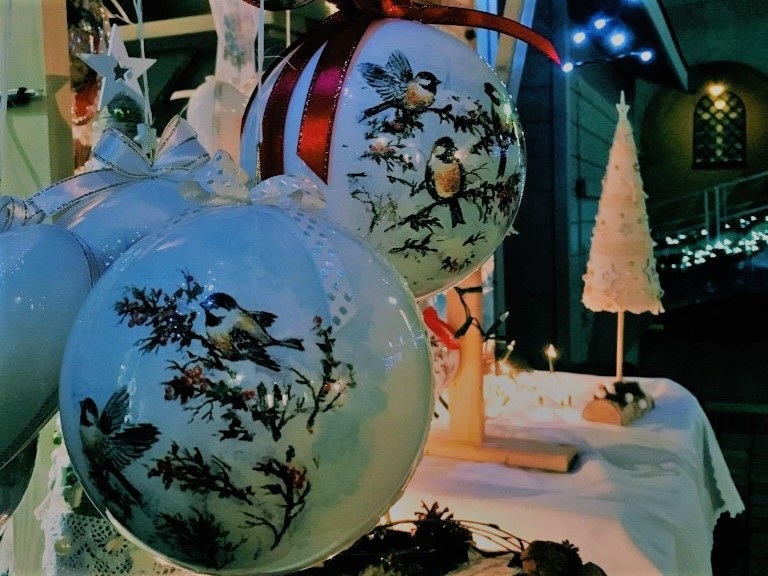
Christmas Carols at the University of Opole
Dear Students, On December, 19 at 8 p.m. we would like to invite you all to the Student Culture Centre for the annual Christmas carol singing. This year the vocalists will be accompanied by the Big Band of the University of Opole. The artists will sing the best known ...
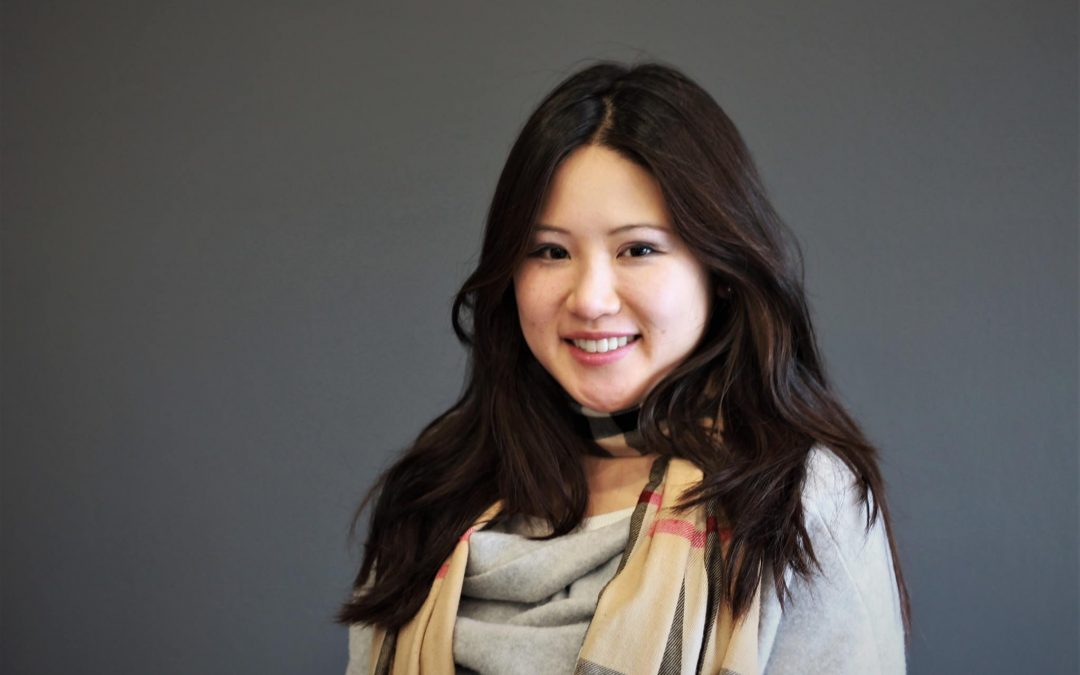
A lecture by Natasha Ng, Polish-U.S. Fulbright Commission Grantee
Dear Students, Department of Biotechnology and Molecular Biology and the Institute of Sociology would like to invite you all to a lecture by Natasha Ng, Polish-U.S. Fulbright Commission Grantee. The theme of the lecture is Higher Education in the U.S.A. with an...
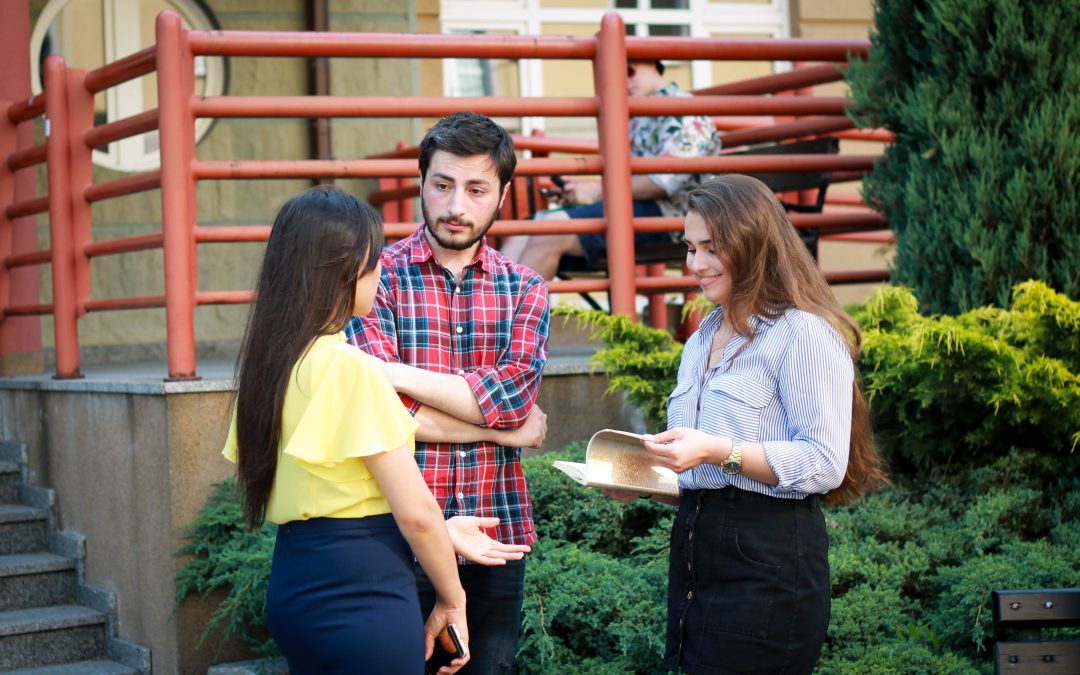
Interstudent
Perspektywy Educational Foundation within Study in Poland programme organises, for the second time, the Interstudent competition. Its aim is to find the most prominent international students, who apart from having good grades, are active in the fields of culture,...

Christmas Market in Opole
In winter days are shorter and nights are longer. People usually hurry to move between places because of snow and cold weather, and might spend their time at home being bored to the bone. But winter doesn’t have to be boring! The City of Opole has a lot to offer to...
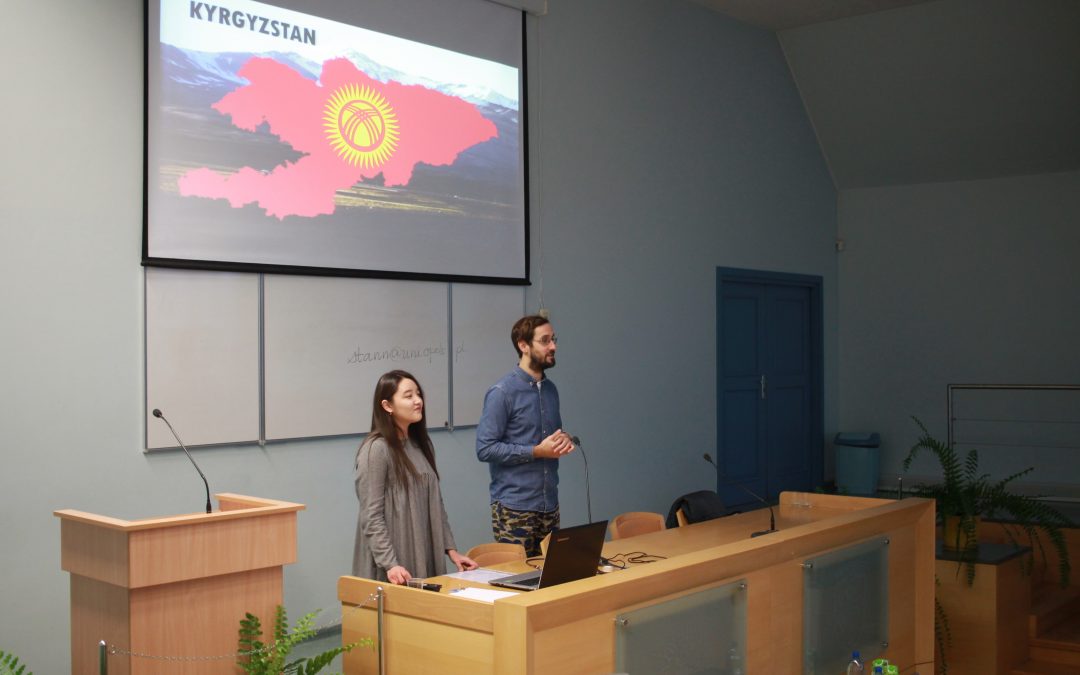
Introducing Cultures Follow-Up
Just a couple of days ago, some of you missed the first meeting of Introducing Cultures series, and, consequently, neither got acquainted with Aisha nor with Kyrgyzstan, her homeland. It’s a pity. Aisha’s presentation was extraordinary. Not only have we learnt how...
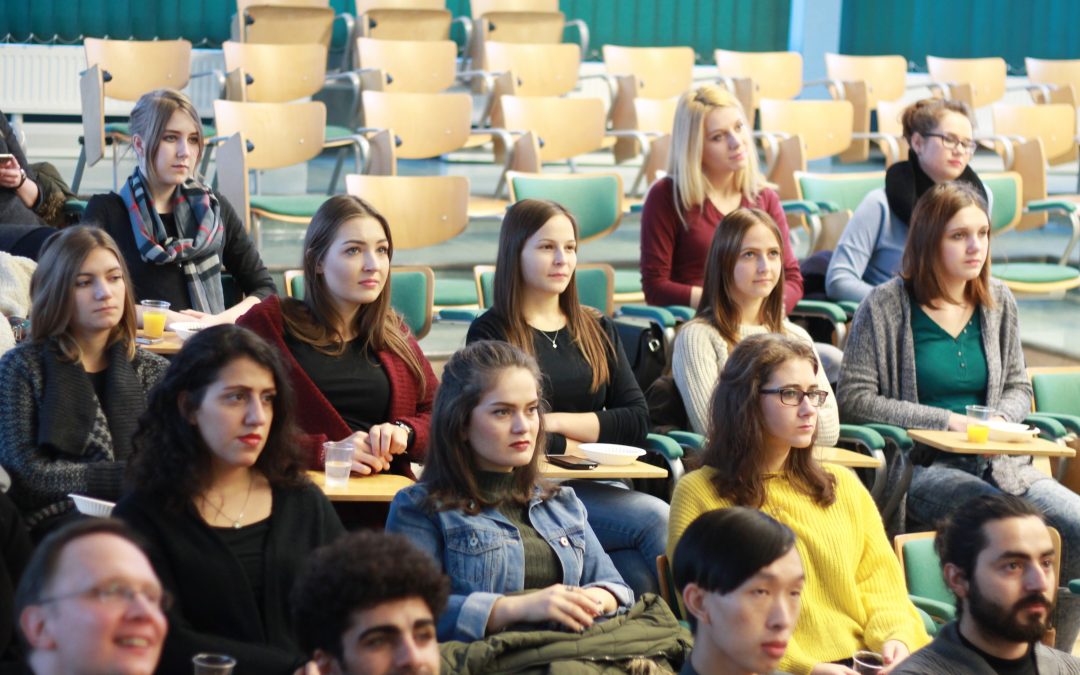
Sociologist of Religion visiting the University of Opole
The Institute of Sociology will be hosting a colleague from the Southern Denmark University, professor Martin Lindhardt, during the next week. He did research on Pentecostalism in Chile and Tanzania and will be working with the students for several days. If you are...
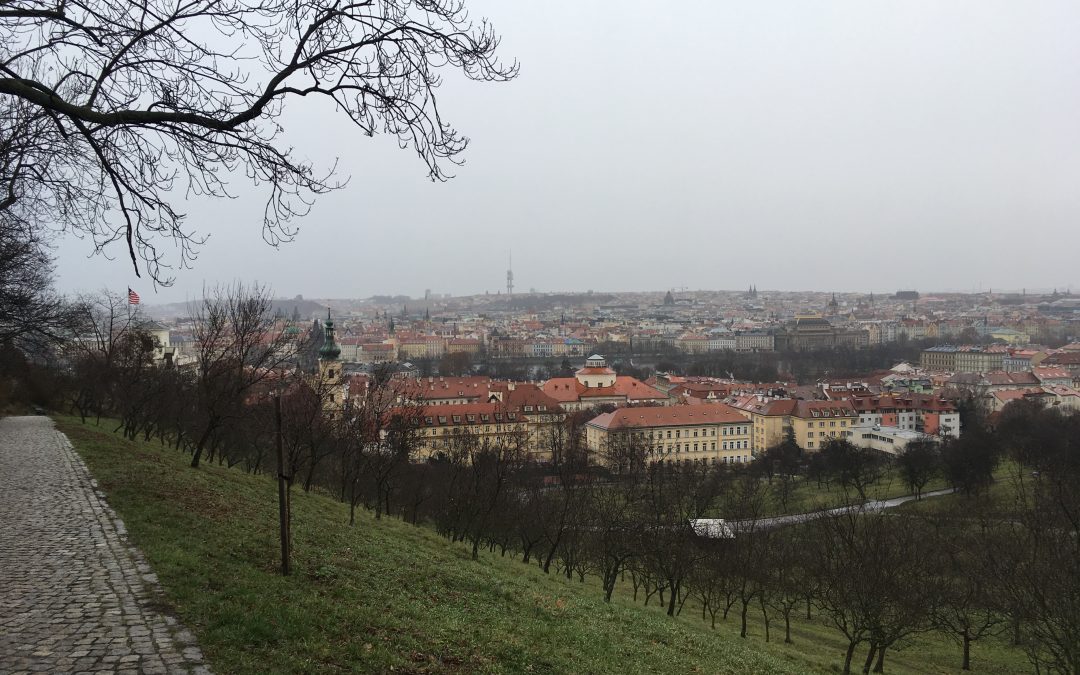
Spring University Prague 2018: Understanding Europe in an Age of Uncertainty
Spring University Prague 2018: Understanding Europe in an Age of Uncertainty is a new academic programme, taking place at Charles University in Prague (Czech Republic) during April 2018 (April 8 – 19). Its aim is to provide students with knowledge necessary to...

Introducing Cultures – Kyrgyzstan
Would you like to learn more about other countries? Gain a better understanding of cultures and traditions of people living in different regions of the world? You are living in the perfect environment to achieve it! In late November, we begin a new cycle of meetings...
